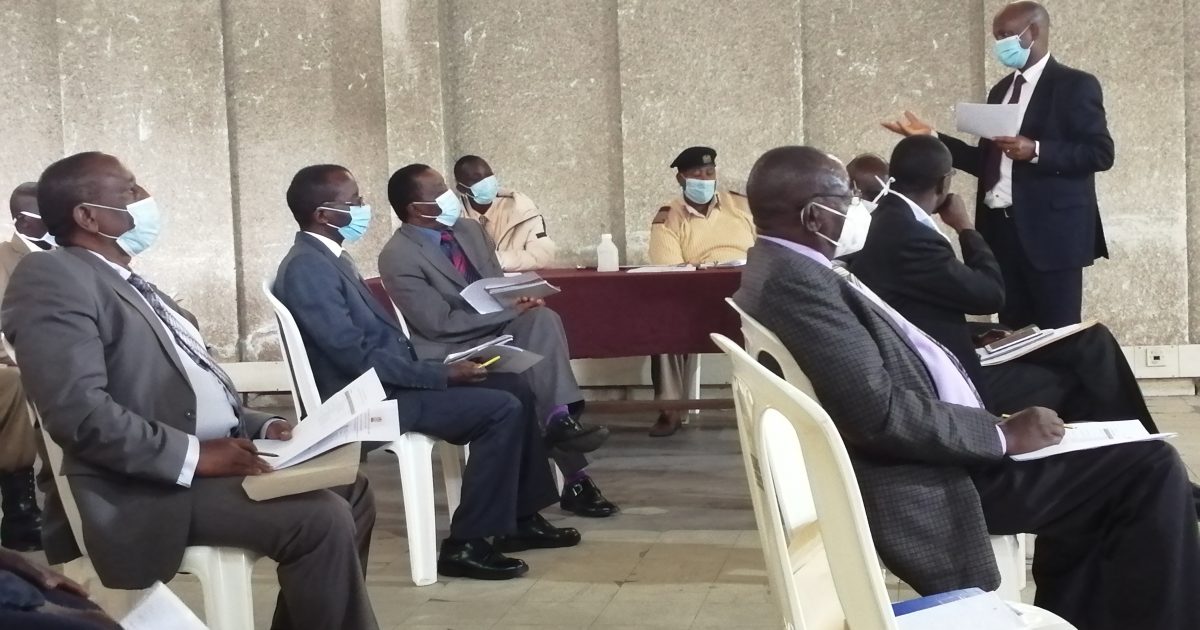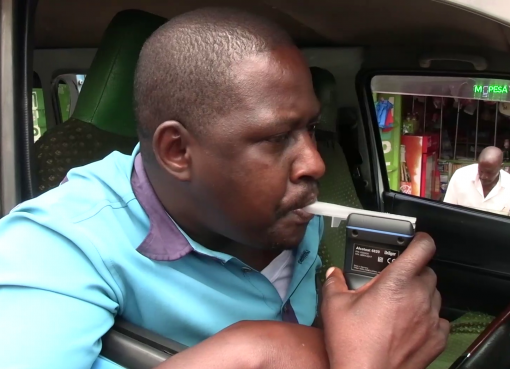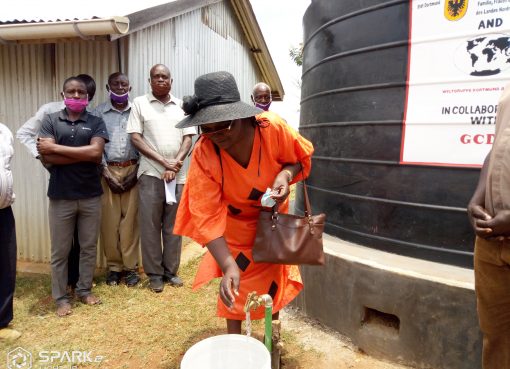The Deputy County Commissioners (DCCs) have been ordered to be directly involved in the management and supervision of the Kazi Mtaani programme to ensure transparency and efficiency in achieving its objectives.
The Nakuru County Commissioner (CC), Erastus Mbui Mwenda also directed the DCCs in all the 11 sub-counties to keep proper records and data on youth involved in the programme so as to enable complaints raised to be addressed in the shortest time possible.
Addressing the County Implementation Committee members of the National Hygiene Programme at the Regional Commissioner’s Plenary Hall on Tuesday, the administrator said the records should be geared towards benefiting youths who have not received their payments for one reason or another.
“With such records Deputy County Commissioners will be able to establish in real time whether workers payments have not gone through due to problems with their lines , if they submitted numbers that were not registered on M-Pesa or if their details did not match with the identification numbers used during registration,” noted Mwenda.
He affirmed that Deputy County Commissioners should not delegate the running and management of the initiative also known as National Hygiene Programme (NHP) to chiefs and their assistants but should be on the ground as it was a government project.
“If we keep these records at Sub-County level the situation will not escalate into protests and demonstration as it will be easy to assist speedily the affected workers in filling indemnity forms for payments to be effected through alternative numbers presented or correcting conflicting personal information,” stated Mwenda.
The administrator further observed that he was aware some individuals were inciting the youth involved in the Kazi Mtaani to join protests “to fulfill selfish interests”, warning that they will be arrested and prosecuted before courts of law.
The nationwide programme targets jobless youths in informal settlements with payments made weekly. It is covering 1,200 informal settlements in the 47 counties. The programme has so far enrolled 270,000 workers. At a daily wage of Sh.455, and Sh.505 for supervisors.
Those enrolled work in an 11-day rotational rota per month so as to distribute the cash to as many households as possible. In this second phase, Sh.10 billion has been allocated primarily to wages.
Mwenda noted that Kazi Mtaani was one of Kenya’s most intensive and pervasive rescue plan ever and challenged DCCS to be creative by roping incorporates and individuals who may want to make contributions towards the same.
He further directed the administrators to be filing timely returns on daily basis on progress, challenges and complains on Kazi Mtaani projects in their respective jurisdictions.
Kazi Mtaani supplements other initiatives by the government, including those by the Ministry of Labour, which normally disburses Sh.1, 000 to up to 235,000 vulnerable families.
By Anne Mwale





